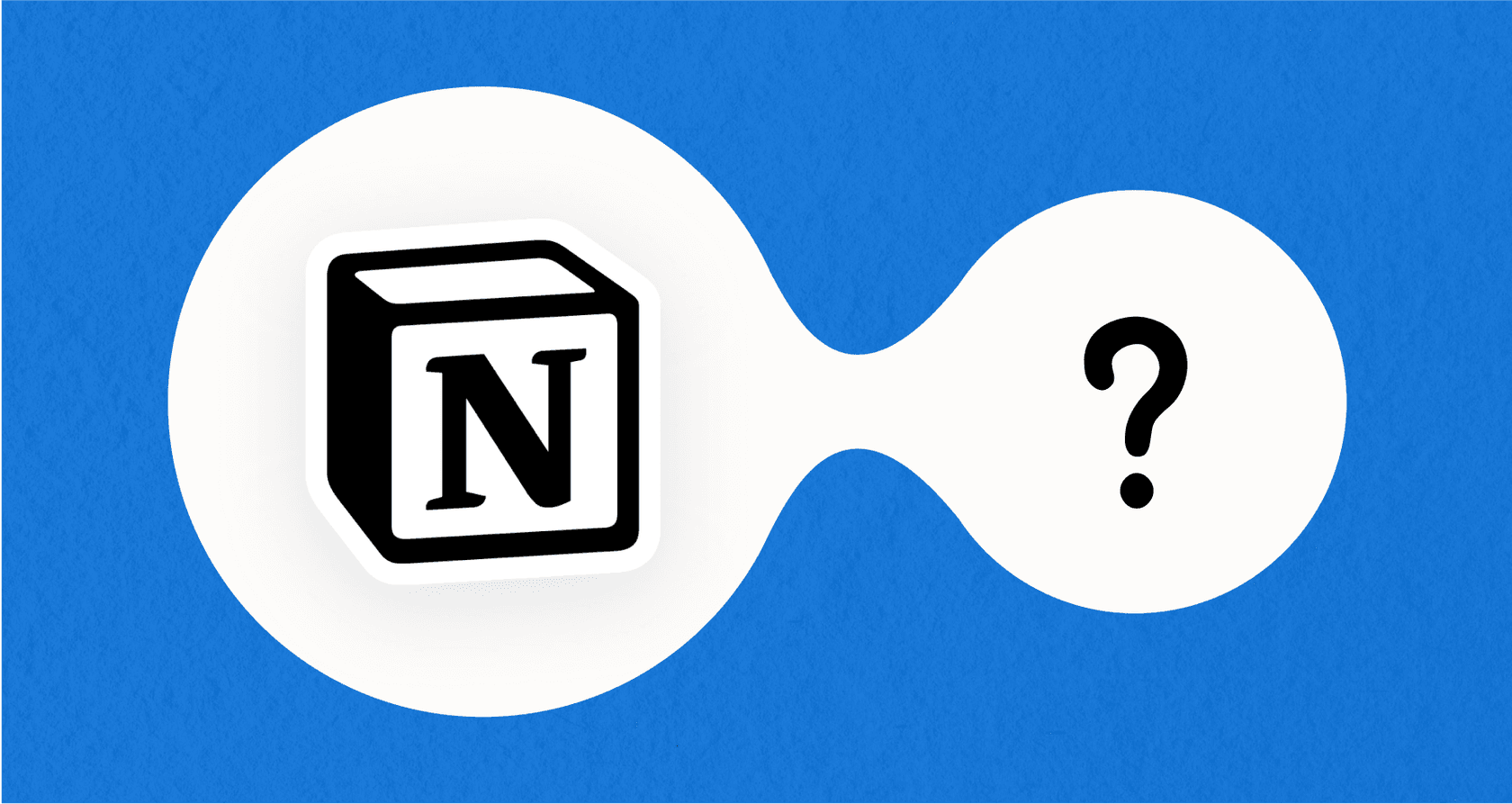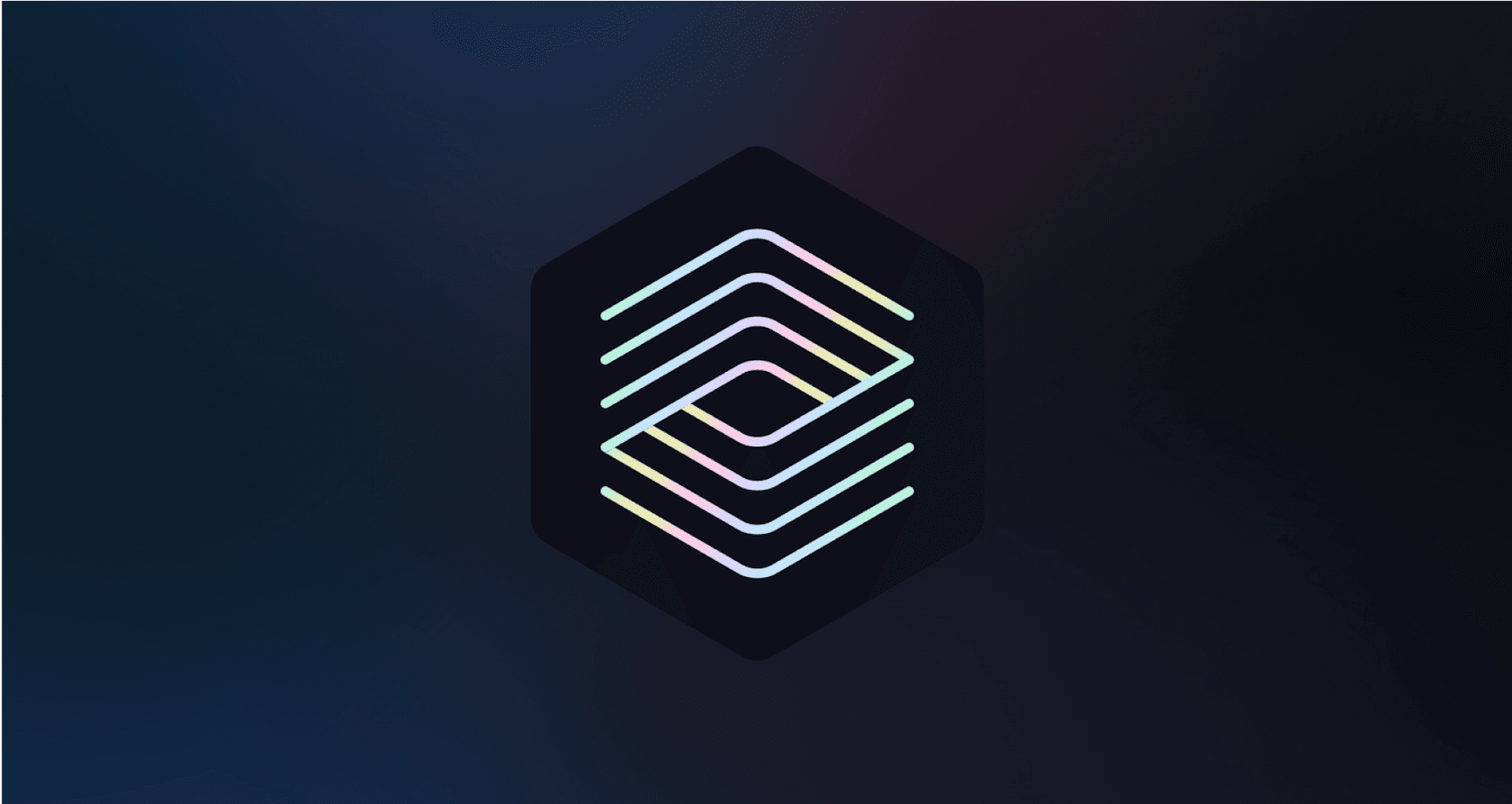
Picking the right tool to manage your team's knowledge feels like a huge decision, doesn't it? For years, the "Notion vs Obsidian" argument has been a hot topic online, and for good reason. On one side, you have Notion, the collaborative, all-in-one workspace. On the other, Obsidian, the champion of privacy and a private, interconnected web of notes.
But most of these discussions focus on personal use. What happens when your team needs to do more than just store information? What about when you need to use that knowledge to solve customer problems, answer questions from other departments, and get work done faster?
In this guide, we’ll walk through the real differences between Notion and Obsidian, looking at features, cost, and who they’re truly for. More importantly, we’ll talk about where they both hit a wall in a business setting and how you can build a knowledge system that actually helps your team move faster.
What is Notion?
Think of Notion as an all-in-one digital headquarters. It’s a cloud-based tool that blends notes, tasks, wikis, and databases into one super-flexible platform. Everything in Notion is a "block", a line of text, an image, or even a full database, that you can drag, drop, and rearrange however you like.
Its biggest strength is teamwork. Multiple people can jump into a page and edit it together in real-time, create complex project plans with different views (like boards and calendars), and build out a detailed company wiki. Since it’s all on the web, your info syncs everywhere automatically, so it's always available. This makes it a go-to for companies wanting to bring all their documents, projects, and team knowledge under one roof.
What is Obsidian?
Obsidian is a different beast altogether. It’s a powerful knowledge tool that runs on top of a simple folder of text files on your own computer. It's designed for building a "second brain", a personal map of your thoughts and ideas that are all linked together. Unlike Notion, Obsidian is offline-first, which means your data lives on your device, giving you complete privacy and ownership.
Its killer features are bidirectional linking and the "Graph view," which shows you a visual web of how your notes connect. It’s fantastic for spotting patterns and making connections you might have otherwise missed. Obsidian is also incredibly customizable, thanks to a huge library of plugins and themes made by its community. It's a favorite among writers, researchers, and anyone who values owning their data, working offline, and tweaking their tools to perfection.
A head-to-head comparison
While both tools help you get organized, they come from completely different philosophies. Let's break down the key differences that matter most for a team.
| Feature | Notion | Obsidian |
|---|---|---|
| Primary Use Case | All-in-one team workspace | Personal knowledge management |
| Data Storage | Cloud-based | Local-first (on your device) |
| Collaboration | Real-time, built-in | Limited; requires workarounds |
| Offline Access | Limited | Full functionality offline |
| Customization | Standardized UI, API available | Highly customizable via plugins & CSS |
| Pricing Model | Per-user subscription for teams | Free for personal, paid for commercial |
Data storage and accessibility
Notion is 100% cloud-based. This is fantastic for keeping everything in sync across your devices and making it simple to share work with colleagues. The trade-off? You need an internet connection to get the most out of it, and some people aren't comfortable with their data living on someone else's servers. If Notion has an outage, you're stuck.
Obsidian is local-first. All your files are plain Markdown text files saved right on your computer. This gives you total control, privacy, and the ability to work offline anytime. The catch is that syncing your notes to other devices can be a bit clunky. You either need to pay for their Obsidian Sync service or set up a workaround with something like Dropbox, which isn't always smooth.
For a business, knowledge has to be both secure and easy for everyone to get to. Relying on just one platform, whether it's in the cloud or on a local machine, often traps information. A more flexible approach is to pull knowledge from everywhere. For instance, an AI platform like eesel AI can securely connect to your cloud apps like Notion and Google Docs while still tapping into offline files, giving your team a single, reliable source of truth.
Collaboration and team use
This is where Notion really shines and, frankly, leaves Obsidian in the dust. It was built for teams from day one. You can have multiple people editing the same page at the same time, leaving comments, and tagging colleagues to assign tasks. You can also set up team-specific spaces and control exactly who can see or edit what.
Obsidian, on the other hand, is mostly a solo act. It doesn't have built-in, real-time collaboration. Sure, you can share your folder of notes (your "vault") through a shared drive or use their paid Publish feature to turn your notes into a website, but it lacks the dynamic, interactive features teams need to work together effectively.
But even with Notion's great collaboration tools, knowledge can still get stuck. How many times does a support agent have to click away from their helpdesk just to search Notion for an answer? A better way is to bring the knowledge to where the work is happening. With tools like eesel AI’s Internal Chat, you can connect your Notion workspace and let your team get instant answers right inside Slack or Microsoft Teams.
Customization and integrations
Obsidian is a paradise for anyone who loves to tinker. With thousands of community-made plugins, you can add almost any feature you can think of, from Kanban boards to advanced academic citation tools. Its look and feel are completely up to you. However, because it’s a local tool, its direct connections to other business apps are pretty limited.
Notion has a solid list of official integrations with popular apps like Jira and Slack. Its API lets you build custom connections, but the core experience is what it is. You can't really change the fundamental way Notion works; you're using the powerful but defined toolkit it gives you.
For a business, the point of integrations isn't just about tweaking your setup; it's about building a connected system where information flows freely. This is where dedicated AI platforms really come into play. While you have to go to Notion or Obsidian to find information, eesel AI acts as a smart layer on top of everything. With over 100 one-click integrations for helpdesks, wikis, and chat tools, it brings your entire knowledge stack together in minutes, making information useful without forcing you to move everything into one app.
Pricing breakdown
Let's talk money. How Notion and Obsidian charge you says a lot about who they're for.
Notion pricing Notion follows a pretty standard per-user, per-month subscription model. The free plan is quite generous for individuals.
| Plan | Price (Billed Annually) | Key Features |
|---|---|---|
| Free | $0 | Unlimited blocks for individuals, limited for teams, 10 guest collaborators, 5MB file uploads. |
| Plus | $8/user/month | Unlimited blocks and file uploads, 30-day page history, 100 guests. |
| Business | $15/user/month | SAML SSO, private teamspaces, 90-day page history, advanced page analytics. |
| Enterprise | Custom | Advanced security & controls, user provisioning (SCIM), dedicated success manager. |
Obsidian pricing Obsidian is free for personal use, which is a huge plus. If you're using it at a company with two or more employees, you'll need a commercial license.
| Plan / Add-on | Price | Key Features |
|---|---|---|
| Personal | Free | All core features for individual use. |
| Commercial | $50/user/year | Required for use in for-profit organizations with 2+ employees. |
| Obsidian Sync | $8/month (billed annually) | End-to-end encrypted sync across devices with version history. |
| Obsidian Publish | $8/site/month (billed annually) | Publish notes to the web as a wiki or digital garden. |
For teams, Notion's cost can climb as you add more people. Obsidian's commercial license is more budget-friendly, but you're not getting any built-in team features. The right choice really depends on what you need: a collaborative workspace (Notion) or a private knowledge tool (Obsidian).
Where both tools fall short for customer support teams
Here’s the thing, though. For all their strengths, neither Notion nor Obsidian was built with customer support teams in mind. They’re great places to store knowledge, but they don't help with the "last mile" problem of getting that knowledge to your agents or customers quickly.
Think about it. When a customer has a question, your support agent has to:
-
Open another tab and search through Notion pages or Obsidian notes.
-
Hopefully, find the right piece of information.
-
Copy it, switch back, and paste the answer into the ticket.
All that bouncing between apps is slow, clunky, and easy to mess up. Your perfectly organized knowledge base ends up being a roadblock instead of a shortcut.
This is exactly the gap an AI support platform like eesel AI is built to fill. Instead of making agents hunt for information, eesel AI brings it to them. By connecting directly to your knowledge sources (including Notion) and your helpdesk, it can:
-
Automate responses: The AI Agent can read a new ticket, find the answer in your Notion wiki, and resolve the issue on its own, no human needed.
-
Assist agents: The AI Copilot can instantly draft perfect replies for your team, pulling info straight from your knowledge base and past tickets. This turns minutes of searching into seconds of reviewing.
Making the right choice for your team
So, Notion vs Obsidian? The best choice comes down to what you’re trying to do.
-
Choose Notion if you need an all-in-one, collaborative hub for your team to run projects and create structured documents together.
-
Choose Obsidian if you (or your team members) put a premium on data privacy, offline access, and a deeply personal, customizable system.
This video offers a balanced comparison of Notion vs Obsidian to help you decide which tool best fits your personal or business needs.
But if your goal isn’t just to store knowledge but to use it to get real business results, like resolving support tickets faster and making your internal teams more efficient, then both tools are just one piece of the puzzle. The real magic happens when you activate that knowledge right where your team is working.
Beyond Notion vs Obsidian: Turn your knowledge base into an automation engine
Ready to stop searching and start resolving? eesel AI plugs into the tools you already use, including Notion, Confluence, and your helpdesk, to automate support, help agents, and make your knowledge work for you.
Go from a static wiki to a dynamic support engine in minutes. Start your free trial today.
Frequently asked questions
Notion is designed for real-time team collaboration, allowing multiple users to edit pages simultaneously, leave comments, and manage projects together. Obsidian, in contrast, is primarily a single-user tool and lacks built-in real-time collaboration features for teams.
Notion is entirely cloud-based, meaning your data is stored on their servers and requires an internet connection for full functionality. Obsidian is local-first, saving all your notes as plain Markdown files directly on your device, giving you complete data ownership and offline access.
Notion operates on a per-user, per-month subscription model, which scales with your team size. Obsidian is free for personal use but requires a commercial license per user per year for businesses with two or more employees, with optional paid add-ons for features like syncing and publishing.
Both tools require agents to switch applications and actively search for information, creating a "last mile" problem. They are not built to seamlessly integrate into helpdesk workflows or automate responses directly, which can lead to slower resolution times.
Yes, offline access is a major differentiator. Obsidian is designed to work fully offline since your data is stored locally on your device. Notion, being cloud-based, generally requires an internet connection for most functionalities and real-time syncing across devices.
Absolutely. While Notion and Obsidian have distinct strengths, platforms like eesel AI can act as an intelligent layer, integrating with both (and many other tools) to unify knowledge. This allows teams to access and leverage information across all their existing systems without needing to migrate data.
Share this post

Article by
Kenneth Pangan
Writer and marketer for over ten years, Kenneth Pangan splits his time between history, politics, and art with plenty of interruptions from his dogs demanding attention.





